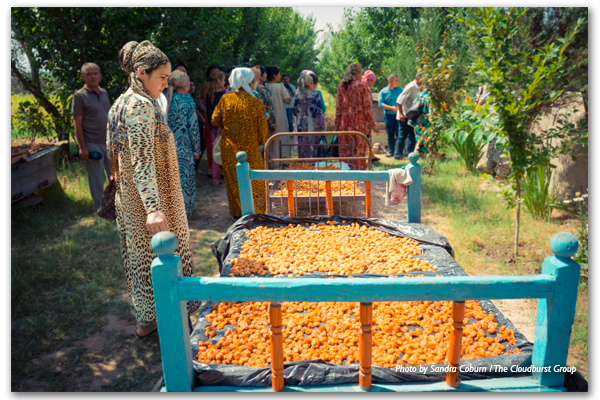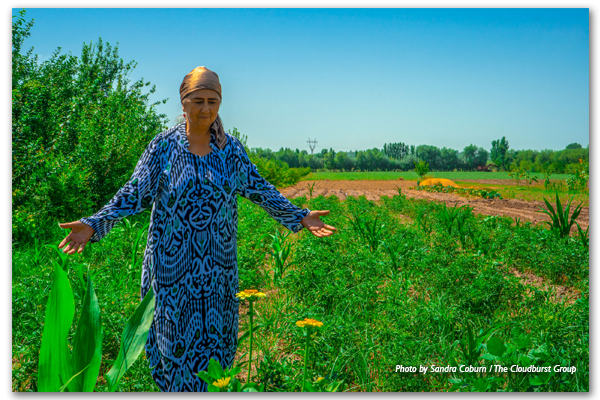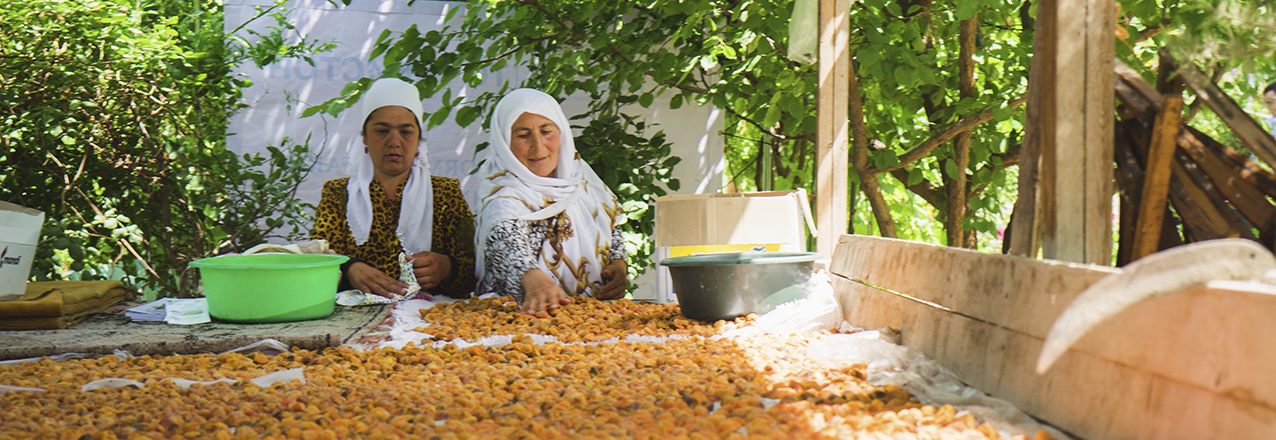Tajikistan is on the cusp of achieving its vision of a fully-functional market that allows land-use rights to be bought and sold. The transition from a post-Soviet system of regulation and control to market-based principles represents the culmination of over a decade of donor-supported commitment and effort to unlock significant economic growth potential in Tajikistan and support the country’s transition away from donor assistance.
 Tajikistan’s arable land is limited, covering just seven percent of its territory. Without a land market, land cannot easily be transferred from less to more efficient types of use, hindering efforts to alleviate the country’s significant rural poverty and food security challenges. Tajikistan’s robust agricultural sector accounts for 57 percent of employment and nearly a quarter of the national GDP. The emergence of a land market is critical to spurring equitable economic growth, and empowering entrepreneurial farmers to either expand their land holdings or lease them.
Tajikistan’s arable land is limited, covering just seven percent of its territory. Without a land market, land cannot easily be transferred from less to more efficient types of use, hindering efforts to alleviate the country’s significant rural poverty and food security challenges. Tajikistan’s robust agricultural sector accounts for 57 percent of employment and nearly a quarter of the national GDP. The emergence of a land market is critical to spurring equitable economic growth, and empowering entrepreneurial farmers to either expand their land holdings or lease them.
These new opportunities are particularly relevant to Tajik women, who make up around two thirds of Tajikistan’s agricultural workforce. After the fall of the Soviet Union, Tajik men left the country in droves in search of better economic opportunities abroad, leaving behind female family members to care for the farms. Donor support, led by USAID, has consistently prioritized the establishment of a legal framework for protecting land holdings, and helping women to overcome adversity as they exercise their land use rights.
Informing to Empower
Land in Tajikistan is owned by the government, with individuals holding rights to use the land. Following independence from the Soviet Union in 1991, the country’s agriculture sector was dominated by large-scale collective farms, which were gradually reorganized into dehkan farms — smaller farms held by an individual family or group of shareholders who willingly joined their land together. With the support of the USAID-funded Land Reform and Farm Restructuring Project (LRFRP), the 2016 Law on Dehkan Farms clearly defines dehkan farms as legal entities and provides better protection of legal rights of farmers that will support the emergence of a market in land use rights.
While donor efforts have helped make new legislation gender-equitable, Tajik women face barriers in taking advantage of their new rights. In some cases, it’s because they lack access to information about the new rights they have, or how to exercise them. In other cases, it is the result of cultural norms which lead local authorities to block attempts by women to register their farms.
To overcome these barriers, USAID-supported projects borrowed from the land reform experience of Tajikistan’s neighbor, the Kyrgyz Republic, by establishing a network of local volunteer experts: tashabbuskors. Modeled on the Kyrgyz demilgechi network, tashabbuskors serve as local land reform experts with whom farmers can consult on a variety of issues, such as disputes with neighbors and settling alleged tax debt. When an issue requires legal support, tashabbuskors can guide the farmer to a local Legal Aid Center to receive professional legal support. Through the Legal Aid Centers and tashabbuskor network, both LRFRP and the ongoing Feed the Future Tajikistan Land Market Development Activity (LMDA) help women and men understand and defend their land rights as land users under the emerging land use market.
Documenting Property Rights
In Tajikistan, ownership of land use rights is documented through certificates issued by the State Unitary Enterprise for the Registration of Immovable Property (SUERIP). However, complicated documentation requirements and unclear procedures have historically frustrated efforts by Tajik women to register property rights. In addition, as SUERIP offices are predominantly staffed by men, cultural norms will cause some women to send a male relative to register land they own. Without their name on the certificate, women are unable to exercise their rights as a landholder.
The tashabbuskor network helps women register their land by providing information and building confidence in how to file their paperwork. Moreover, the Feed the Future Tajikistan Land Market Development Activity is working with SUERIP to hire and train more female registrars, helping create an environment more suited for the agency’s clientele, as well as supporting efforts to improve registration office procedures to save time and cost.
The Emerging Market
By the end of 2016, following the passage of the new Law on Dehkan Farms, large-scale collective farms made up less than one percent of arable land in Tajikistan, and registered small-holder dehkan farms made up 81 percent. In addition to ensuring the rights of dehkan farms as legally-recognized entities, the law advanced the ability for landholders to leverage land use rights in civil transactions, such as leasing and mortgage. Once final legal instruments are in place, farmers in Tajikistan will be able to transact land use rights. This could include a farmer mortgaging land to provide a mechanism for financing investment, or a farmer having the opportunity to lease or sell the rights to his or her property upon retirement.
The success of the land market depends on a supportive enabling environment and the sustainability of the underlying institutions. The modernization of SUERIP offices and dissemination of information through the tashabbuskor network is only the beginning. The National Association of Independent Appraisers has been established to develop the professional capacity of Tajikistan’s nascent land valuation service providers. The taxation of dehkan farms is under review to ensure fair and equitable taxation of farm activities. A sustainable model of free or low-cost legal aid to farmers whose land use rights are challenged is being developed and implemented. As these initiatives progress and come together, a viable market for land use rights is within reach, advancing Tajikistan further along the path toward greater economic self-reliance and resiliency.


